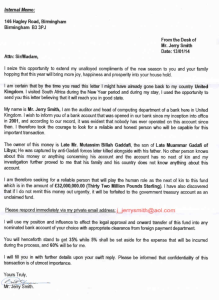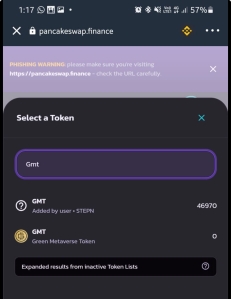One recent phenomena that has constantly plagued our lives are the ubiquity of scams. Where in the past, they were a lot more obvious to spot ala Nigerian prince email (also known as advance-fee scam), today they can be a lot more nuanced and believable.

Scammers have upped their game, creating entire webpages to get unsuspecting victims to fill in their particulars. This is why large organisations and the authorities have doubled down on efforts to educate the public on looking out for telltale signs to avoid falling for scammers’ tricks.

Other traps include providing fake employment through meaningless “work”, and even paying the victims a few times to lure them in first, before getting them to transfer back a larger amount on the premise of a huge payout. As a matter of curiosity and taking pride that I would not be scammed so easily, I even gave them a try and manage to collect some of their baits first before ghosting them. The only downside is that I subsequently got more of such messages, perhaps because my phone number gets circulated around those circles for future attempts.
The Woke Salaryman had a brilliant article on why Singaporeans are considered choice targets for scam. The four reasons are:
- We are a high-trust society.
- They get a higher ROI from us.
- We are easy to reach digitally.
- We have an overconfidence bias.
As you can see above, I am highly guilty of that last reason too.
So you must be wondering what scam did I fall for exactly. Before I go into the latest one, I want to point out that this wasn’t even the first time I got scammed. Only while I was thinking about writing this post did I realise that I had been scammed previously. Maybe because the amount was quite small ($100) the last time round that I did not take it too seriously.
The first time I got scammed back in 2022 was in the crypto space, at the peak of the NFT hype. The idea was similar to those fake webpages because we bought into a fake alt-coin that had a very close name to the legit one that we were looking out for. All they had to do was put up a convincing message on the main Discord channel that looked like it came from the moderators.


The second time that I got scammed (most recently) in my search for bringing over an Indonesian maid to work for us. I posted my message on various Facebook groups in search of bringing one over without going through an agent. One contact responded saying that his cousin was looking for such employment. We thought we did our due diligence by video-calling both individuals.
However, we realised that we had failed to ask for images of their documents. Then again, this is still not sufficient to avoid getting scammed. All in, they sounded very convincing. After we had transferred (2M Rp ~ S$174) for the maid to make her passport, the cousin left the group chat and the profile was entirely taken down thereafter.

The amount is not life-changing, but it leaves a bitter taste in the mouth that there are such scammers abound. We liked to think ourselves as good employers who will take care of those under us, but scammers have no interest in that and merely want to cheat others of their money. My reflection from this is that we all become easy preys when we are at our weakest in moments of greed or desperation, which I must also emphasis is a very normal and human experience. We just have to check our blindspots each time we find ourselves in such situations.
So all that said, we are now just another statistic, and an unreported statistic at that. It goes to show that the $660.7M lost to scammers in 2022 is very likely a severely underreported number because victims like us just don’t think it is necessary to go through all that trouble when the recourse to retrieving that money is very likely impossible, even if this buggers were caught.
My hope is just that through this sharing, everybody will be that bit more vigilant and won’t find themselves in a similar situation.



